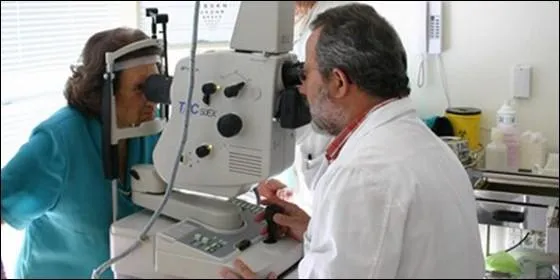Did you know that performing a background test every year in older people with diabetes is key to preventing diabetic retinopathy?
Older people who have diabetes should have a background examination annually to detect the appearance of diabetic retinopathy, according to the IGURCO health career services of Grupo IMQ, Naiara Fernández.
This has stated during its conference 'Comprehensive geriatric assessment: definition of objectives by areas in the approach of visual limitation', where he recalled that the prevalence of diabetes in people over 70 years is above 15 percent,according to data from the Spanish Society of Endocrinology and Nutrition.
Among the elderly diabetics, studies suggest that four out of ten develop a diabetic retinopathy, one of the ocular health problems "most frequent in this group," he said.
The screening of these aspects, regularly, "is essential."For example, it should be forgotten that half of the elderly who have diabetes, "do not know that they suffer from it and, therefore, if they are not regularly controlled, the risk of presenting visual failure, among many other health aspects,It increases, "said the specialist.
Comprehensive geriatric assessment
He also explained that through an integral geriatric assessment of the elderly with visual limitation "by consideration of the clinical, functional, cognitive and social area of the same, those objectives to be achieved after the correction of the pathology can be establishedCausing visual limitation ".
Having as its main objective of the "intervention the promotion of autonomy, better health results, and, ultimately, the improvement of the quality of life of the older patient".
In addition, he has warned of the need to contextualize health problems and relate them to the physical and vital state of the major.
"For example, in the face of a loss of non -diagnosed visual acuity, from geriatrist we consider that this elderly is with a high risk of suffering a fall and, consequently, of having a hip break that can see not only its quality compromisedof life and his health, but his own ability to fend for herself; that is, her autonomy, "he said.
Similarly, "at the time of visual exams in older people, the visual pathology itself must not end, but to understand how it can affect other aspects of the health of the greater or their quality of life."
And it is proven that the loss of vision "not only increases the risk of falls and dependence, but also influences the appearance of disorders such as depression, alterations in vital nutrition and broom derived from the inability to carry out regular activities orpleasant such as walking, reading or sewing, for putting some daily examples. "


